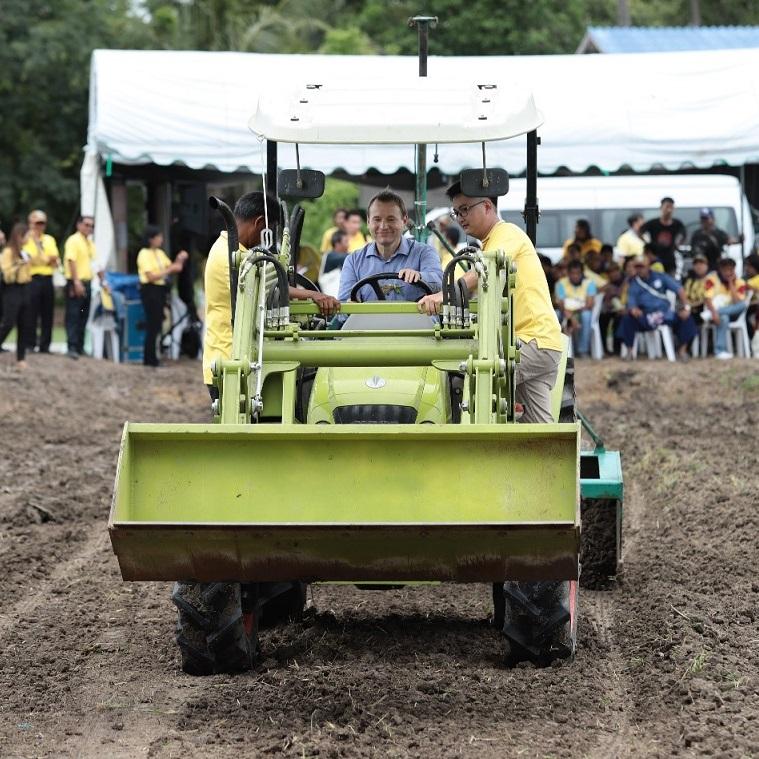Inclusive business approaches can play a pivotal role in both addressing climate change and creating a positive impact on low-income communities.
Circular economy solutions are a key element of reaching net zero targets globally. Innovative businesses have found zero waste approaches that provide livelihoods to low-income communities.
Inclusive business plays a role in the transition to renewable energy, often with the support of impact investors.
Integrated tourism provides another key example of how business can support livelihoods while reducing the ecological footprint of visitors and playing a role in environmental education.
Adaptation is shaping up to be a critical goal of COP26 and communities can shape adaptation planning processes by identifying their most valued resources and how to protect them.
Climate-smart agricultural practices support farmer resilience and adaptation to climate change while also reducing carbon emissions.
Inclusive businesses can draw on climate financing to help reach their sustainability goals at a greater scale by creating a path for financial sustainability.
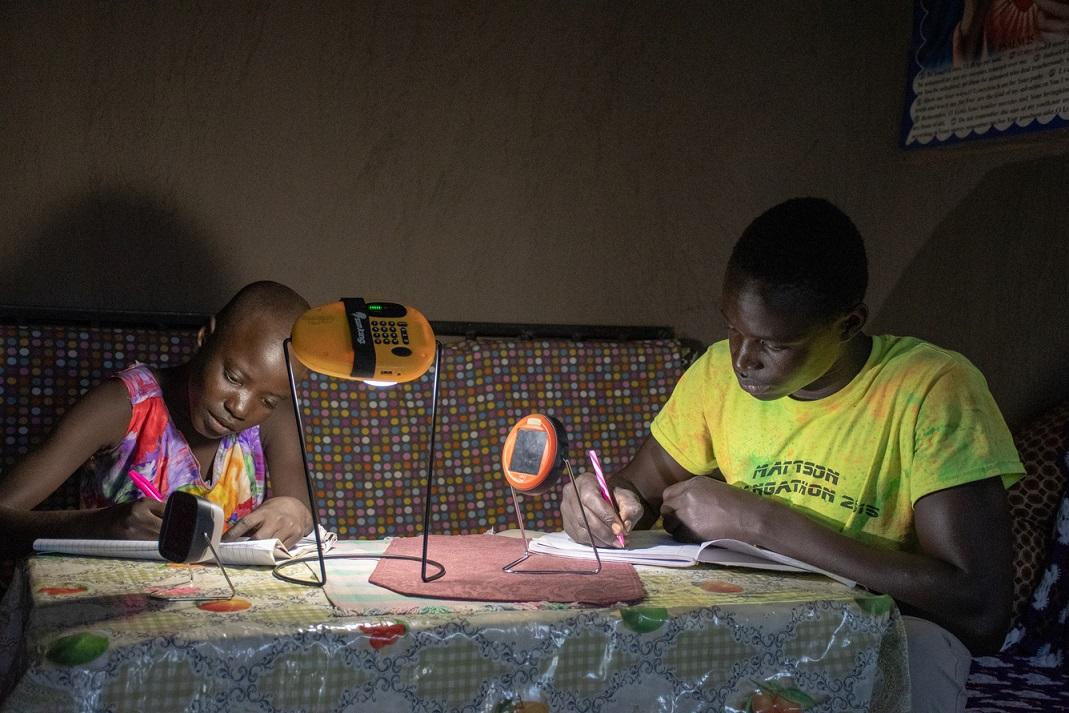
Innovations like low-cost solar appliances merge social and environmental impact.
In the leadup to the UN Climate Change Conference in November (COP26), it is clear from severe climate events including droughts in Kenya, heavy monsoon rains in India and wildfires raging in the U.S. that climate change threats are already altering the world as we know it. The most recent Intergovernmental Panel on Climate Change (IPCC) report confirmed that global annual temperatures will likely exceed the critical 1.5-2 degree threshold unless there are immediate, rapid, large-scale reductions in global greenhouse gas emissions.
Reducing emissions by shifting towards renewable energy and focusing on adaptation and resilience planning are among the stated goals of COP26. While the world is reaching a tipping point, it is often underprivileged communities in developing countries that face the highest level of climate risk. Inclusive business approaches can play a pivotal role in both addressing climate change and creating a positive impact on vulnerable communities. This issue of CLUED-iN focuses on the intersection between climate action and social impact, highlighting inspiring examples of solutions that support communities to be more resilient while also contributing to climate change mitigation.
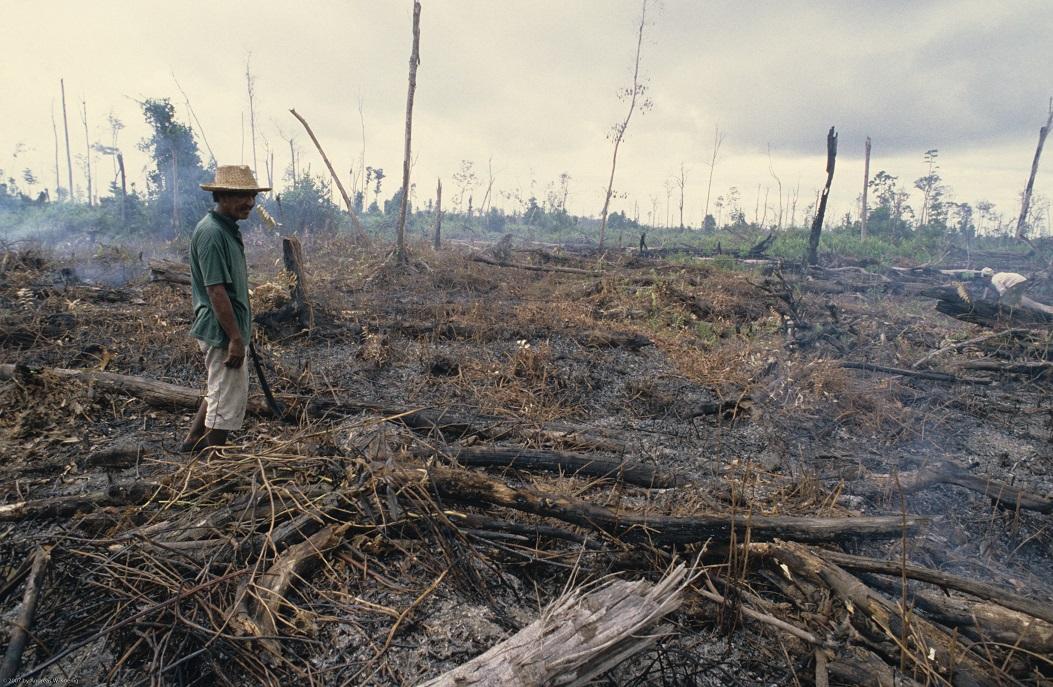
The world is reaching a tipping point.
Circular economy solutions are a key element of reaching net zero targets globally. Innovative businesses have found waste-to-value approaches that provide livelihoods to low-income communities while reducing emissions and waste. One such example is Alpha Polyplast, a Zambian business focused on recycling plastic bottles which provides waste pickers with training and a guaranteed price for bottles collected. Zero waste initiatives can also include lower income groups by providing them with low cost consumer options that are better for the environment. For example, in the Philippines, a “wala usik”(meaning zero waste) initiative introduced by the Philippine Reef and Rainforest Conservation Foundation (PRRCFI) provided convenience stores with refill containers to phase out the use of small plastic sachets, thus serving communities but also reducing the environmental footprint of each small business. In the first prototyping cycle, eight convenience stores were found to have prevented the use of more than 45,000 individual sachets over a period of seven months. This kind of innovation requires a mindset shift as well: “The main challenge for local business is a shift towards accounting for a triple bottom line. While we design them to make profit, they will also need to factor in the benefits in terms of planet and people, and most of the time these are not valued in profit and loss analysis,” states Dave Albao, Executive Director of PRRCFI.

PRRCFI also promotes environmental education.
In addition to supporting the circular economy, inclusive business can play a role in the transition to renewable energy, often with the support of impact investors. Devidayal Solar Solutions in India, featured in this issue, reduces carbon dioxide emissions while providing solar solutions in the form of appliances for underserved communities in India, including those in isolated locations who cannot afford large up-front costs to transition to solar energy.
Finance can also propel and support new environmental and social solutions. Encourage Capital, an impact investment firm, focused on providing MSMEs with rooftop solar financing because this was identified as a critical gap and opportunity to scale their impact. “We decided to focus on this segment because MSMEs, which typically face challenges in accessing finance, were also overlooked in the clean energy transition. MSMEs are critical to India’s industrialization, accounting for 45 per cent of industrial output. They are also large, and often inefficient, consumers of energy for electricity and industrial processing,” Ameya Bijoor of Encourage Capital explains.
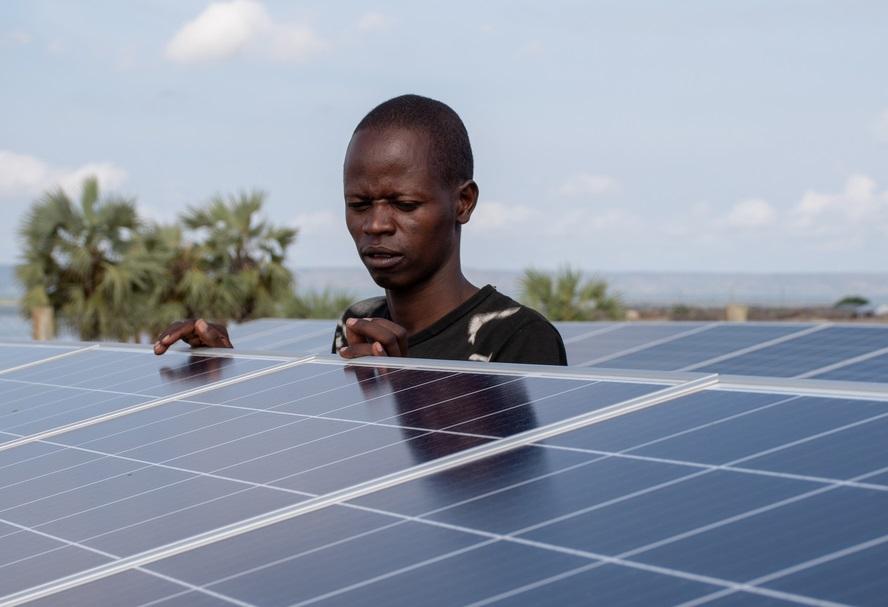
Inclusive Business can support the transition to renewable energy.
Integrated tourism provides another key example of how business can support livelihoods while reducing the ecological footprint of visitors and playing a role in environmental education. In this issue of CLUED-iN, we speak with Jackie Allicock, who runs Surama Eco-Lodge in Guyana, a community based tourism business developed, owned, and managed by Surama village, an Indigenous community. “We have a cooperative approach to community development; we used a supportive approach rather than a competitive one, which recognises that every community is unique and has products that can be developed into attractive packages,” she tells us.
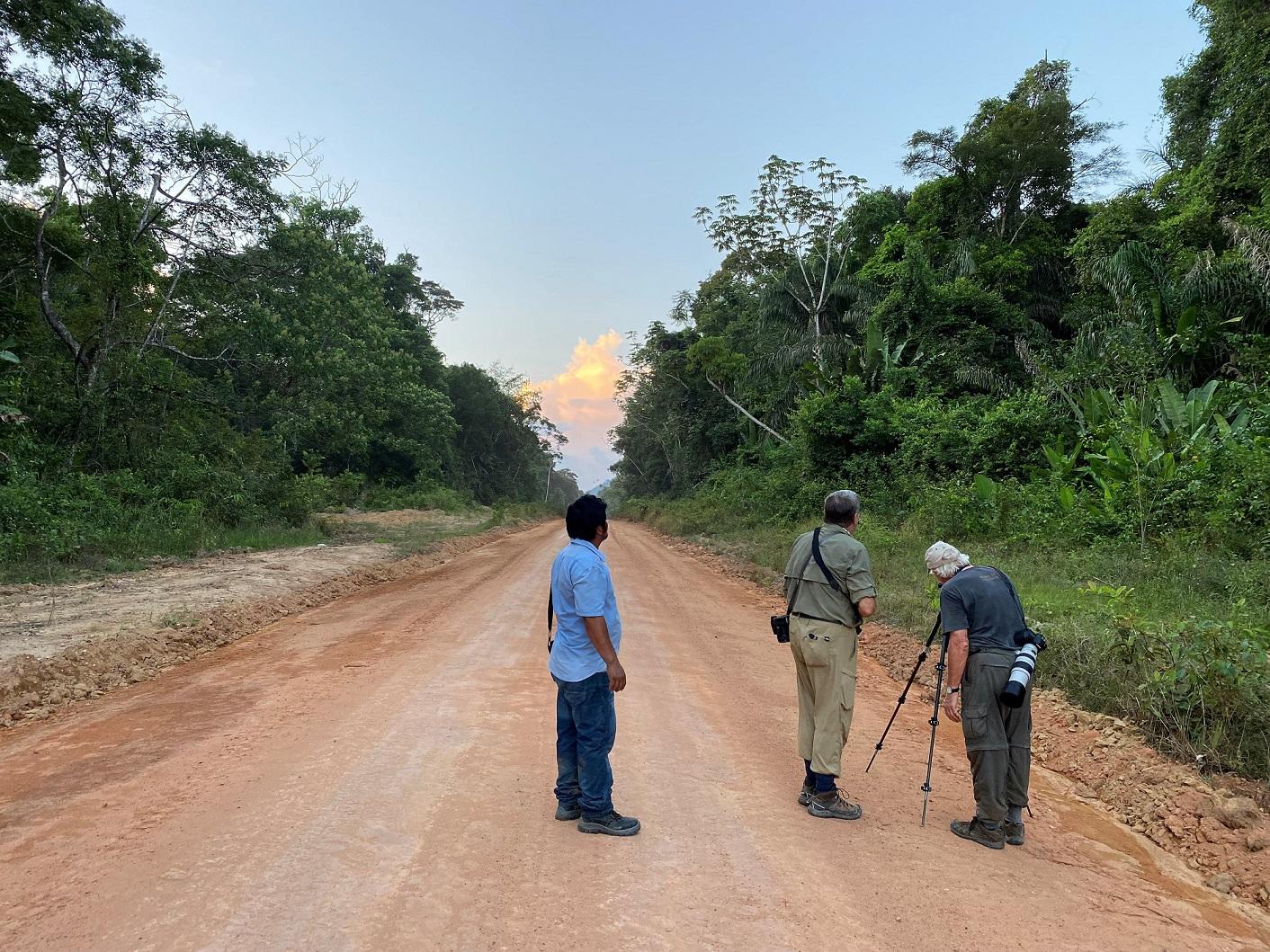
Tourism can support livelihoods and help protect the environment.
On September 6th, at a dialogue convened by the Global Centre on Adaptation, more than 50 ministers and heads of climate organizations and development banks called for the COP26 climate summit to treat adaptation as an urgent issue. During the dialogue, UN Deputy Secretary-General Amina J. Mohammed highlighted the need for "massively scaled-up investment in adaptation and resilience.”
Adaptation is shaping up to be a critical goal of COP26, and communities play an important role in adaptation planning by identifying their most valued resources and how to protect them. Adaptation International is working directly with communities to plan potential mitigation actions. This issue of CLUED-iN takes a closer look at how one Californian town is planning how to adapt to the immediate threats of climate change. As a community threatened by both wildfires and a rising sea level, Corte Madera took action, together with Adaptation International, to develop a Climate Adaptation plan.
“The process of implementing adaptation measures, given the dramatic physical changes that will likely be required and the costs involved, is ultimately one that necessarily requires community members to take ownership of solutions,” Adam Wolff, the Director of Planning and Building in Corte Madera, California told us.

How can communities adapt to climate change?
Adaptation and resilience can also be supported by climate-smart agricultural practices. In the case of the Thai rice NAMA project, adopting new technologies and farming methods such as alternate wetting-drying can reduce emissions while also helping rice farmers adapt to conditions such as drought. According to Tobias Breunig of GIZ, “These sustainable rice farming practices are cross-cutting; while they help to mitigate greenhouse gases, they can also serve to increase the resilience of farmers against climate threats.”
Kennemer Foods International, an inclusive business in the Philippines working with smallholder cacao growers, has transitioned to a climate neutral sourcing platform. This has been achieved by introducing sustainable farming methods and an extensive afforestation and reforestation program. Inclusive businesses such as Kennemer can draw on climate financing to help reach their sustainability goals at a greater scale by creating a path for financial sustainability. “We believe climate financing can play an important role in supporting smallholder farming systems’ shift to more sustainable and improved crop production,” Simon Bakker of Kennemer Foods International shares in his interview with CLUED-iN.
Merging climate goals with social impact allows businesses and communities to ensure that the most vulnerable to climate threats are not left out of the required solutions to meet the urgency of the moment.

Farmers need to adapt to climate change.
- Inclusive Business Features: The Inclusive Business (IB) Features are an update on the framework for companies, policymakers, and investors about what it means to be an inclusive business. They were developed with the input of leading global organizations.
- Intergovernmental Panel on Climate Change (IPCC), Sixth Assessment Report. AR6 Climate Change 2021: The Physical Science Basis: The Working Group I contribution to the Sixth Assessment Report addresses the most up-to-date physical understanding of the climate system and climate change, bringing together the latest advances in climate science.
- COP26 Goals
- Intellecap, Waste-to-Value Startup Ecosystem: Opportunities for the Circular Approaches in East Africa: This white paper presents an overview of the waste sector in East Africa with a focus on waste-to-value startups. The findings highlights gaps, opportunities, and potential solutions that could accelerate the growth of the ecosystem.
- A multiple criteria approach to map ecological-inclusive business models for sustainable development: This research paper presents the first attempt to apply a multiple criteria approach to map ecological-inclusive business models and to structure their main features, in terms of sustainable development.
- Regenerative travel, "Taking Regenerative Tourism to Scale – Everyone has a Role to Play": Brian T. Mullis, a destination management, development and marketing specialist who is passionate about community-led conservation and regenerative tourism, shares how everyone has a role to play in taking regenerative tourism to scale.
Slider: © Kennemer Foods International (cocoa farmer), © GIZ/Dirk Ostermeier (solar panels), © GIZ Thailand (farmers)
Other images: © GIZ (solar lights), © GIZ/Andreas König (deforestation), © PRRCFI (environmental education), © GIZ/James Ochweri (solar panel), © Surama Lodge (tourists), Unsplash (flooding), © GIZ/Gaël Gellé (cocoa farmer)


